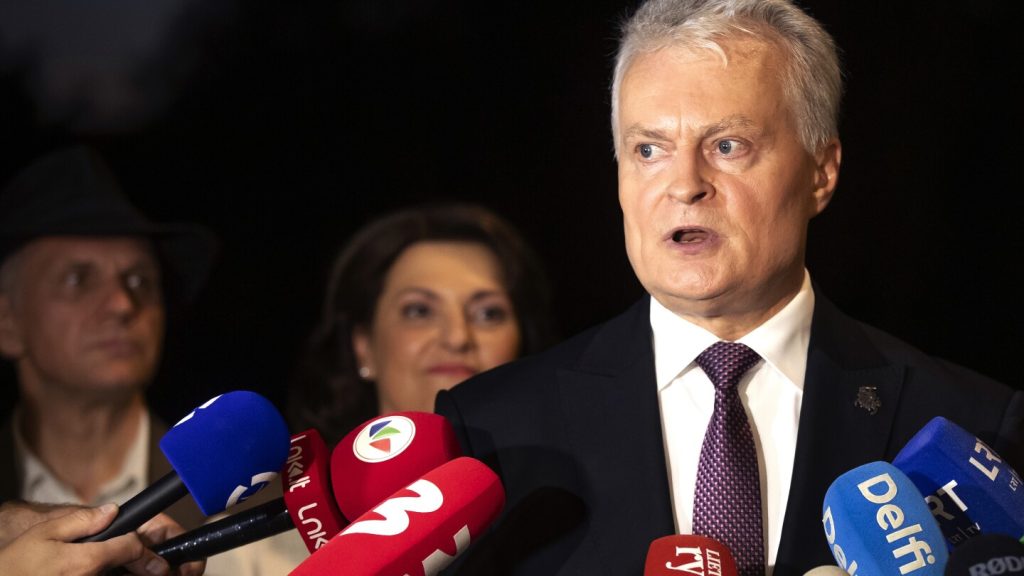Lithuanian President Gitanas Nausėda has secured a second five-year term in a landslide victory over Prime Minister Ingrida Šimonytė. Preliminary figures from Lithuania’s Central Electoral Commission showed that Nausėda won 74.5% of the votes, while Šimonytė received 24.1%. Nausėda, a 60-year-old moderate conservative, has been a strong supporter of Ukraine and has welcomed refugees fleeing authoritarian crackdowns in neighboring Belarus and increased repression in Russia. After his victory, Nausėda emphasized the importance of protecting Lithuania’s independence and freedom, stating that it is a fragile vessel that must be cherished and safeguarded.
During his time in office, Nausėda has aligned with Lithuania’s allies, including the United States, Germany, and Poland, on key issues like support for Ukraine and concerns about the Russian threat. The president, who entered politics after a successful presidential run in 2019, has emphasized the need to maintain a united front against Russian aggression, especially in the strategically important Baltic region. As tensions with Russia continue to rise over the conflict in Ukraine, the presidency of NATO-member Lithuania takes on added significance in overseeing foreign and defense policy and acting as supreme commander of the armed forces.
Located north of Poland and south of Latvia and Estonia, Lithuania plays a critical role in the region by separating Belarus, an ally of Russia, from Kaliningrad, a heavily militarized Russian exclave on the Baltic Sea. Given its strategic position on NATO’s eastern flank, Lithuania’s leadership is crucial in navigating the complex geopolitical landscape and maintaining unity within the alliance. Before the election results were announced, Šimonytė conceded defeat and congratulated Nausėda on his victory. Both candidates have expressed support for Ukraine and previously faced off in a presidential runoff in 2019, which Nausėda also won with a significant margin.
As Nausėda prepares to begin his second term in July, Šimonytė has announced that she will return to work as prime minister in Lithuania. The country, with a population of nearly 3 million people, has seen a turnout of 49.15% in the recent election. The victory for Nausėda comes at a critical time as concerns mount over Russian aggression in Ukraine and the wider region. With his strong support for Ukraine and commitment to defending Lithuania’s independence, Nausėda’s reelection signals continuity in the country’s foreign policy and defense strategy. Moving forward, the focus will likely remain on maintaining solidarity with allies and navigating the complex challenges posed by Russia’s influence in the region.


